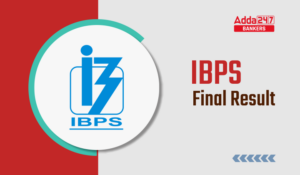Table of Contents
The State Bank of India has officially released the SBI Clerk Notification 2025, which presents a promising opportunity for candidates aspiring to join India’s largest public sector bank. The SBI Clerk 2025 exam is scheduled for February 2025, making it important for candidates to begin their preparation with a focused and efficient plan. Excelling at both stages of the selection process requires a clear understanding of the syllabus and strategic preparation.
Top Scoring Topics for the Numerical Section
The area to focus on is the Numerical Ability section, which plays a crucial role in determining overall performance. To maximize their score, candidates must prioritize top-scoring topics and adopt effective problem-solving techniques. In this article, we will discuss the most important topics for the Numerical Ability section of SBI Clerk 2025 and provide tips to help candidates achieve their goals efficiently. This year is especially important for those who wish to secure the position of Clerk or Junior Associate in SBI.
Simplification
Simplification has consistently been one of the most scoring topics in the Numerical Ability section of the SBI Clerk exam over the last five years. In particular, data from the past three years highlights that the majority of questions in this section have been drawn from simplification. This trend underscores its importance and makes it a crucial area for candidates to focus on during their preparation. Mastering simplification not only boosts accuracy but also saves valuable time during the exam, significantly enhancing overall performance.
Data Interpretation
Data Interpretation (DI) is another critical topic in the Numerical Ability section of the SBI Clerk exam, with a significant number of questions consistently appearing each year. Over the last two years, five DI sets were asked annually, highlighting its importance in the exam. In 2021, the number of DI sets increased to ten, and in 2019, seven sets were featured in the paper. This pattern indicates that DI remains a high-weightage topic, requiring candidates to build strong analytical and problem-solving skills to excel in this area.
Arithmetic Word Problem
Arithmetic Word Problems are a crucial part of the Numerical Ability section in the SBI Clerk exam, with around 10 questions consistently asked over the last five years. This highlights its importance from a scoring perspective. Covering topics like percentages, profit and loss, time and work, ratio and proportion, and averages, this section requires a solid understanding of core concepts. Mastery of Arithmetic Word Problems can significantly boost a candidate’s overall score and exam performance.
Number Series
Number Series in the SBI Clerk exam typically includes two types of questions: Missing Number Series and Wrong Number Series. In the past two years, SBI has consistently asked five questions each year from the Wrong Number Series, making it a key area to focus on. Before that, the Missing Number Series was featured with five questions. Both types require candidates to identify patterns and sequences, with Wrong Number Series focusing on finding the incorrect number in the sequence and Missing Number Series testing the ability to identify the missing number.
How to Work on These Topics
To excel in the Numerical Ability section of the SBI Clerk exam, it is essential to adopt a strategic approach toward mastering key topics such as Simplification, Data Interpretation, Arithmetic Word Problems, and Number Series. These topics not only form the foundation of the section but also offer high scoring potential if approached with proper preparation. Here we present some strategic approach to boost your score in SBI Clerk 2025.
Simplification:
Simplification is a scoring topic with the highest number of questions over the past three years.
Focus Areas: Practice calculations involving BODMAS, percentages, square roots, cube roots, and approximations.
Practice Plan: Solve at least 30-40 simplification problems daily using mock tests and previous years’ papers.
Tip: Learn shortcut methods and tricks to enhance speed and accuracy.
Data Interpretation (DI):
DI questions are critical, with consistent inclusion of 5-10 sets in recent years.
Focus Areas: Prepare thoroughly for bar graphs, line charts, pie charts, and tabular DI.
Practice Plan: Dedicate time daily to solving DI problems of varying complexity. Begin with simple sets and gradually attempt advanced-level questions.
Tip: Work on improving calculation speed and develop skills in interpreting data quickly and accurately.
Arithmetic Word Problems:
Arithmetic Word Problems are essential, with 10 questions consistently asked in recent exams.
Focus Areas: Cover core topics such as percentages, profit and loss, averages, time and work, ratio and proportion, and simple and compound interest.
Practice Plan: Allocate time daily to solve topic-specific questions, focusing on understanding the concepts behind each problem.
Tip: Review previous years’ question papers to identify commonly asked problem types.
Number Series:
Number Series is a high-scoring topic that frequently appears in the Numerical Ability section of the SBI Clerk exam.
Focus Areas: Practice identifying patterns such as arithmetic progression, geometric progression, differences, squares, cubes, and alternating sequences. Familiarize yourself with missing number series and wrong number series problems.
Practice Plan: Solve at least 20-30 number series questions daily, starting with basic patterns and gradually progressing to more complex sequences. Use mock tests and previous years’ question papers for practice.
Tip: Develop an eye for identifying patterns quickly and use elimination techniques to save time during the exam.




 IBPS Final Result 2025 Coming Out Tomorr...
IBPS Final Result 2025 Coming Out Tomorr...
 Simple Tips to Avoid Common Mistakes In ...
Simple Tips to Avoid Common Mistakes In ...
 Important Topics & Shortcuts for IDB...
Important Topics & Shortcuts for IDB...


